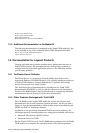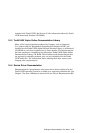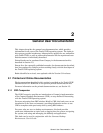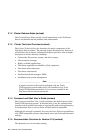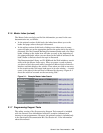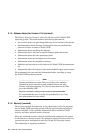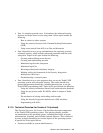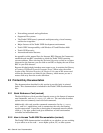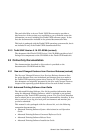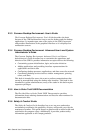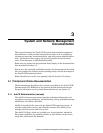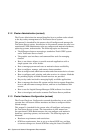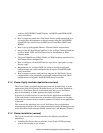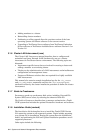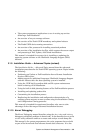• Networking protocols and applications
• Supported file systems
• The Tru64 UNIX kernel, symmetric multiprocessing, virtual memory,
and device recognition
• Major features of the Tru64 UNIX development environment
• Tru64 UNIX interoperability with Windows NT and Windows 2000
• Tru64 UNIX security
• Internationalization features
An appendix to this manual lists the Internet RFC (Request for Comments)
standards and non-RFC standards to which the Tru64 UNIX operating
system conforms. When viewing the Technical Overview on line on a system
connected to the Internet, you can click on an RFC to display the text of that
RFC in your Web browser.
Because this book might introduce new terms to you, it contains the Glossary
of Common UNIX and General Computer Terms. When using the online
version of the Technical Overview for Version 5.1A, some of the terms used
within the discussions are linked to the Glossary, which means you are a
mouse click away from the term’s definition.
2.2 Printed-Only Documentation
The documentation described in this section is provided only in printed
books. This documentation is included in the Tru64 UNIX documentation
kits.
2.2.1 Quick Reference Card (revised)
The Quick Reference Card provides fingertip access to the format of common
user commands, such as cd, chmod, lpr, and man. The card also describes
options that are commonly used with each command.
Additionally, this card provides command summaries for the vi, emacs,
Mail, and mail applications, and it summarizes the rules for forming
regular expressions. It provides a description of command control symbols
(such as |, the pipe symbol) and gives definitions of shell environment
variables and metacharacters.
2.2.2 How to Access Tru64 UNIX Documentation (revised)
The Tru64 UNIX documentation is available to you whether you are working
in your office or on the road — on an Alpha system, PC, or other system.
2–6 General User Documentation



